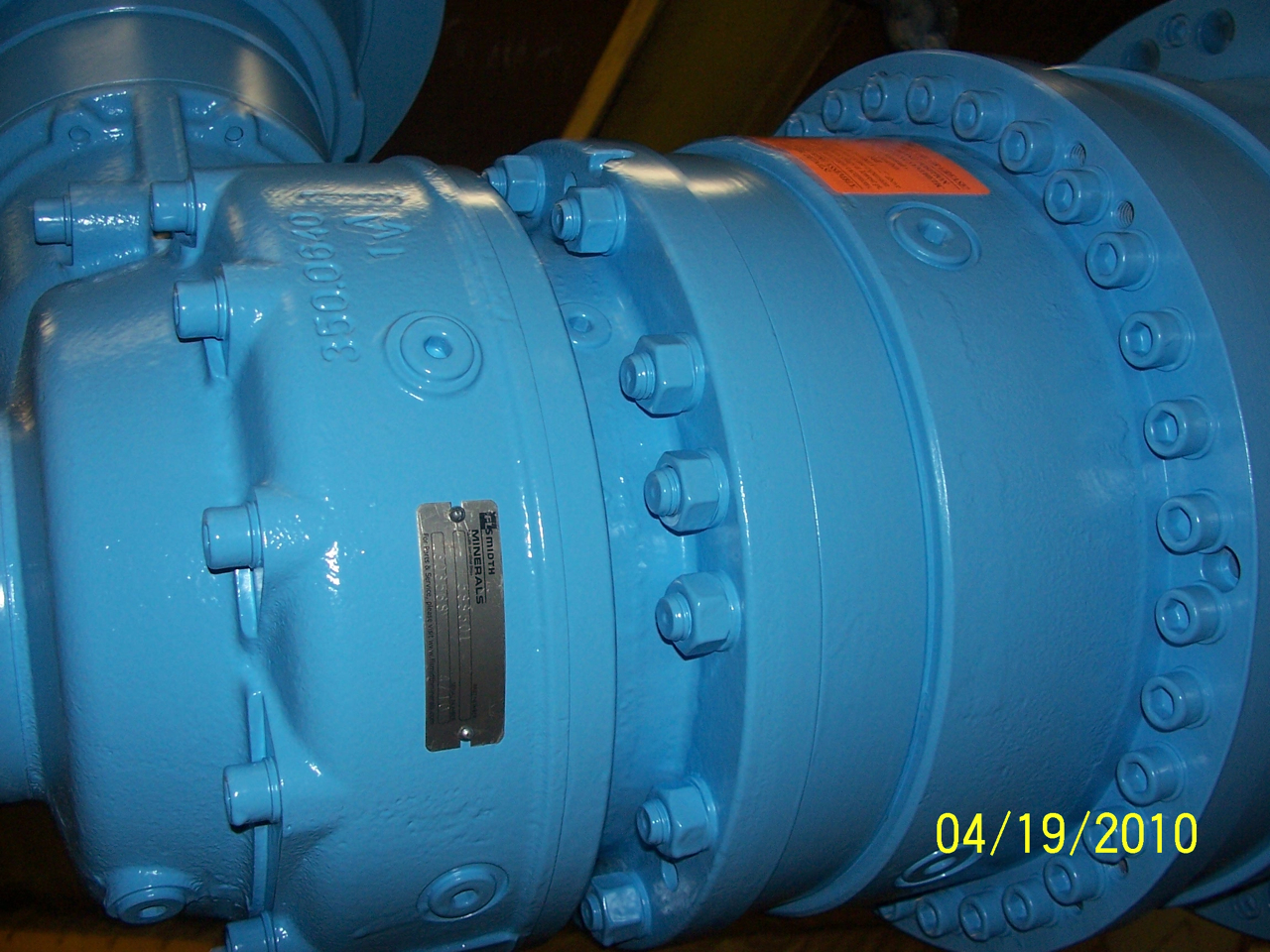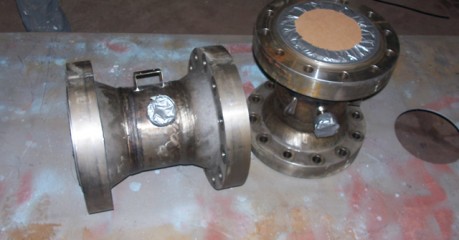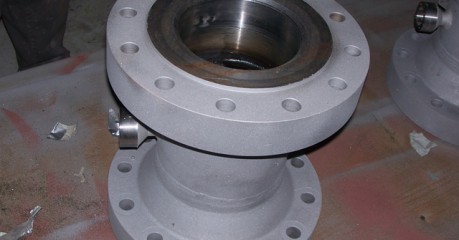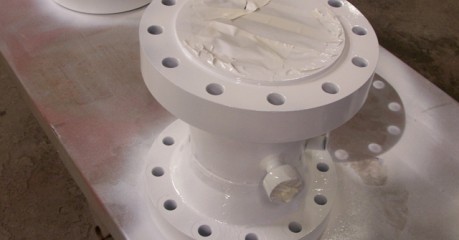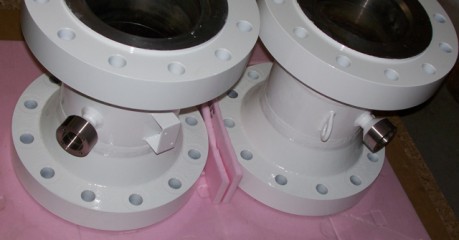An industrial coating is a paint or coating defined by its protective, rather than its aesthetic properties, although it can provide both. The most common use of industrial coatings is for corrosion control of steel or concrete.
Clean
Surfaces are prepared by abrasive blasting, corn cob cleaning, chemical cleaning, passivation, phosphate coatings, solvent cleaning, and more.Coat
Specifications to NSF, NACE, SSPC, USDA, FDA and others are followed. Colors to Fed Standard 595, RAL, Pantone, and many others are available.Deliver
Cleaning and Painting at your convenience. Work can be performed at your site or ours. Freight nationwide and international shipping.
Call us for specification details, translation, or compatible methods. When Quality Matters contact us at (847) 455-8450
Industrial coatings cover a very large range of diverse uses for coatings with many differing requirements and functions. Some of the sectors covered are given below:
Aircraft and aerospace coatings: These are coatings applied to both civil and military aircraft and helicopters. The military applications often involve compliance with a range of defence specifications and requirements. Click here for more.
Automotive and Vehicle Refinish: These are coatings that are applied to cars, vans, lorries, trailers etc. The difference in the two terms is that automotive coatings are those that are applied during the manufacture of the vehicle and vehicle refinish coatings are those that are applied in bodyshops during accident repairs. Automotive coatings are ‘factory’ applied but vehicle refinish are applied in a variety of environments. The latter are subject of strict controls due to some of the ingredients involved and the publications below should be read by those involved in the application of these coatings:
Can coatings: These are a range of very specialized coatings that are applied at low thickness but provide a high degree of protection. These coatings are used for both internal and external coating on food and drink cans. Any coating that is used internally has to be approved for food contact.
Coatings for plastics: Special coatings designed for use on plastic substrates, such as car bumpers, dashboards and grills, plastic toys and electronics.
Coil coatings: These are coatings applied to metal sheets – often starting as large coils of steel which are then formed into a wide range of uses e.g. domestic appliances such as washing machines, automotive parts and composite panels for prestigous buildings.
General Industrial: This terminology is used to cover a range of coatings which have a wide range of applications to steel, iron and aluminium as well as to glass, plastic and wood. These coatings include both air drying and stoving coatings and will include coatings across a wide range of uses such as nuts and bolts, office furniture, toolboxes, transformers, power plant, transport containers and agricultural and construction equipment. The term will include coatings that are defined and listed separately such as coil and high performance coatings.
High Performance: These are also known as Protective Coatings and are the coatings applied to structural steelwork such as bridges, oil and gas rigs, structures such as stadiums and warehouses and chemical plants. These coatings are designed to have both high corrosion resistance and also good cosmetic appearance. These coatings will resist adverse weather, corrosive atmospheres and chemicals and they will provide durability to structures. In this sector coatings will have to meet a wide range of requirements through specifications and standards before they can be used. Equally important to their long term performance is the preparation of the substrate and good application practices.
Marine: These are coatings applied to all sizes of ships and boats and will cover tankers, cruise ships, tugs and yachts. The coatings cover topsides, above the waterline, and antifouling coatings which are applied to minimize marine fouling and reduce ships’ drag through the water. The coatings cover those used by professional applicators and also those used by amateurs in marinas and boatyards.
Wood Finishes: The term used to cover those coatings used as industrial wood coatings. These are coatings applied in factories to wood for a range of uses, which include office furniture, kitchen and bathroom fittings, general furniture and industrial joinery. These are different to ‘wood care’ coatings which are the DIY coatings such as wood varnishes and coatings for fences and decking etc.
Fire Protection and intumescent coatings: These are two distinct sets of coatings; the fire protection coatings are those that restrict the spread of flame and have flame retardant properties, these are generally applied on wooden subtrates and are used to comply with Building Regulations. Intumescent coatings are applied to structural steelwork and react in a fire to form an impervious layer that will protect the steel and maintain its structural integrity. Coatings in these categories have to meet certain test requirements and will carry certification on their performance.
A large range of other coatings are those for application to leather, vacuum applied coatings, coatings for electronics, line marking coatings etc. and specific use requirements.

